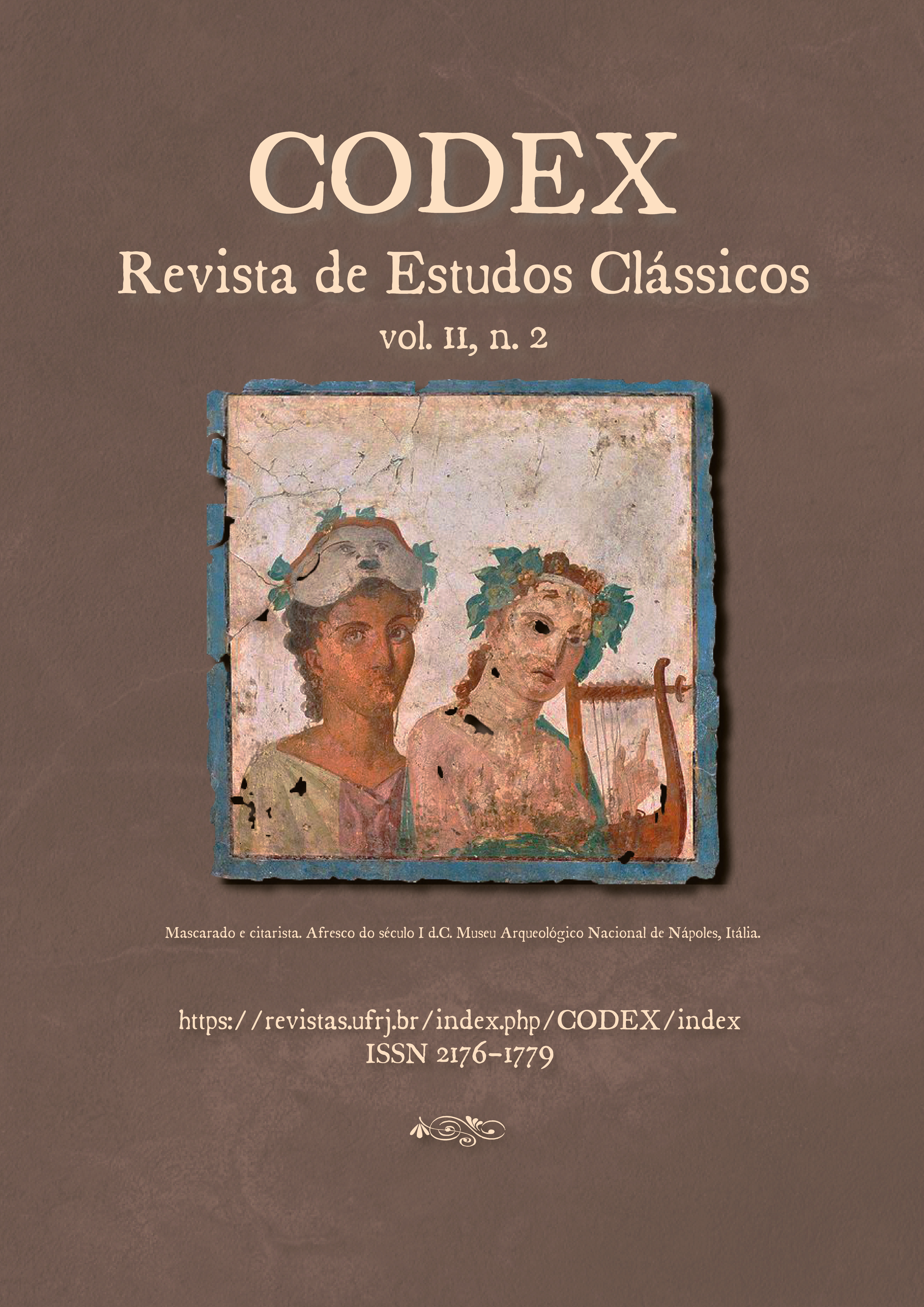The unreasonable character in Plato’s Republic
DOI:
https://doi.org/10.25187/codex.v11i2.62408Keywords:
unreason, dialogue, emotionsAbstract
In this paper, I start from EN discussion on pathe’s configuration and its intrinsic relationship with human actions to discuss how the character Thrasymachus of the Republic’s Dialogue can be considered a paradigmatic example of a disposition whose reason is inoperative. Indeed, since this sophist is deeply rooted in his world’s conceptions, without admitting the hypothesis that his positions and answers about many subjects are shown incorrect for they fall into contradiction, beforehand all possibility of dialogue fails with such a man. Thus, in Republic, on the one hand, dialogic action shows the power it exercises in the souls of those who are willing to suffer its effects, but on the other hand, it points to the limits to which it is subjected. The deviation from the rational order, i.e., unreason, is an insurmountable obstacle to Socratic philosopher insofar as it signals to the end of discourse and the bestial ferocity’s prevalence. Certainly, Thrasymachus is the beast with whom it is not possible to dialogue.
References
ADORNO, Theodor. Educação contra a barbárie. In: Educação e emancipação. 7. Imp. São Paulo: Paz e Terra, 2012.
ARISTOPHANES. Clouds. A commentary. S. Douglas Olson. Michigan: University of Michigan Press, 2021.
ARISTÓTELES. Ethica Nichomachea I 13-III-8. Tradução, notas e comentários de Marco Zingano. São Paulo: Odysseus, 2008.
ARISTOTELIS Ethica Nicomachea. Edited by Ingram Bywater. New York, Cambridge University Press, 2010.
LOPES, Antônio Orlando de Oliveira Dourado. A dificuldade de Trasímaco: uma interpretação do Livro I, da República de Platão a partir dos poemas homéricos. Revista Kleos, Rio de Janeiro, n.2/3, 1998-1999.
PEREIRA, Oswaldo Porchat. Prefácio a uma filosofia. In: Vida comum e ceticismo. 2. Ed. São Paulo: Brasiliense, 1994.
PLATÃO. Apologia de Sócrates. Tradução: Carlos Alberto Nunes. Belém: Editora UFPA, 2015.
PLATÃO. A República. Tradução: Anna Lia Amaral de Almeida Prado. São Paulo: Martins Fontes, 2006.
PLATÃO. Górgias. Tradução, ensaio introdutório e notas: Daniel R. N. Lopes. São Paulo: Perspectiva, 2011.
PLATONIS Rempublicam. Ed. S.R.Slings. Oxford: Oxford University Press, 2003.
ZINGANO, Marco. Estudos de Ética Antiga. 2. Ed. São Paulo: Discurso Editorial/Paulus, 2007.
Downloads
Published
How to Cite
Issue
Section
License
Copyright (c) 2024 Cristina de Souza Agostini

This work is licensed under a Creative Commons Attribution-NonCommercial 4.0 International License.
This work is licensed under a Creative Commons Attribution-NonCommercial 4.0 International License.










